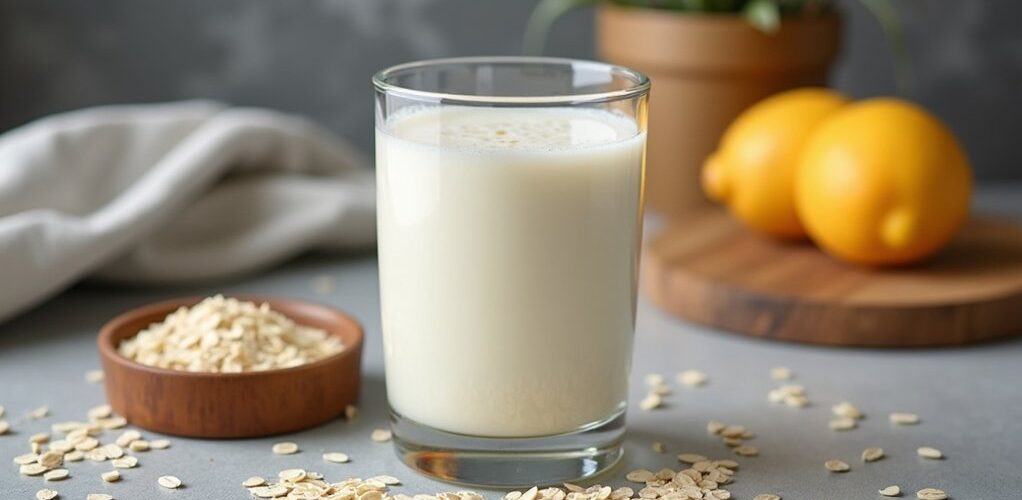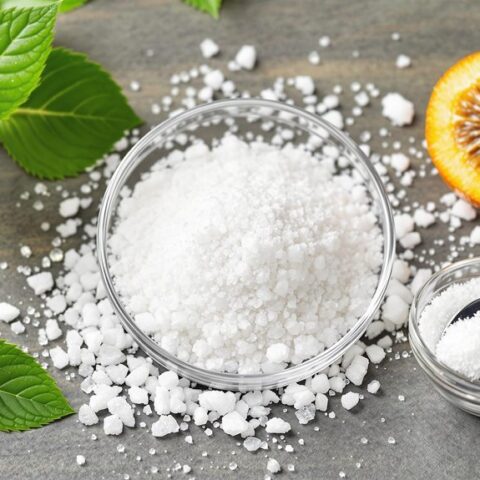
Oat milk is not a low-carb beverage, containing approximately 16 grams of carbohydrates per cup serving, which poses challenges for those following ketogenic or low-carb diets. While offering benefits like fiber, protein, and essential nutrients, its carbohydrate content is considerably higher than alternatives such as unsweetened almond milk (1g) or macadamia nut milk (0g). Understanding oat milk's nutritional profile and exploring lower-carb alternatives can help consumers make informed choices for their dietary needs.
Key Takeaways
- Oat milk is not low-carb, containing 16g of carbohydrates per cup serving, which is significant for those following carb-restricted diets.
- Even unsweetened oat milk varieties maintain high carbohydrate levels, ranging from 6.5% to 8.5% of total content.
- Better low-carb alternatives include unsweetened almond milk (1g net carbs), macadamia milk (0g), or coconut milk (1-5g per cup).
- The carbohydrate content in oat milk can affect blood sugar levels, making it challenging for diabetics and keto dieters.
- Portion control and precise measurement are essential when using oat milk, as carbohydrates can quickly accumulate beyond dietary limits.
Carbohydrates in Oat Milk: Understanding the Numbers
Oat milk's carbohydrate content plays a notable role in determining its suitability for various dietary needs. While nutritional benefits vary across brands, oat milk typically contains between 6.5% to 8.5% carbs, with sugars comprising roughly half of this amount.
Oat milk's carb levels significantly impact its nutritional profile, with most varieties containing 6.5-8.5% carbohydrates and half being sugars.
A typical cup serving provides approximately 16g of carbohydrates, making it a considerable factor in daily intake calculations.
For those following low-carb or keto diets, even unsweetened oat milk varieties can present challenges. Popular brands like Waitrose offer products containing 7.6g of carbs per 100ml, while Califia Farms Unsweetened Oatmilk contains 9g per cup.
These carbohydrate levels can notably impact blood sugar management, particularly for individuals with diabetes who need to carefully monitor their carb consumption.
Health Benefits and Dietary Impacts of Oat Milk
Beyond its carbohydrate profile, the nutritional composition of oat milk presents several notable health advantages for consumers seeking plant-based alternatives.
While its high carb content may not suit low-carb diets, oat milk offers significant dietary benefits, including being cholesterol-free and containing 1 to 4 grams of fiber per serving.
When fortified with vitamins and minerals, it becomes an even more compelling option for those requiring dairy alternatives.
- Contains essential amino acids and up to 8g of protein per serving in premium varieties
- Provides natural sugars rather than artificial sweeteners, supporting sustained energy
- Delivers dietary fiber that aids digestive health and promotes satiety
- Offers fortified vitamins and minerals that support overall nutrition, particularly in dairy-free diets
Best Low-Carb Milk Alternatives for Your Diet
When seeking low-carb alternatives to traditional dairy milk, several plant-based options emerge as excellent choices for those following ketogenic or carbohydrate-restricted diets. While oat milk contains higher carbohydrates, unsweetened almond milk and macadamia nut milk stand out as keto-friendly options, containing just 1g and 0g net carbs per cup, respectively. For those seeking variety, coconut milk offers 1-5g net carbs per cup while providing beneficial fats, and pea milk delivers a protein boost with only 2g net carbs per serving. These alternatives guarantee maintaining a low carb count without sacrificing taste or nutritional value. Avocados are rich in monounsaturated fats and can serve as an excellent addition to a low-carb diet, providing essential nutrients and promoting heart health.
Smart Strategies for Including Oat Milk in Your Meals
Successfully incorporating oat milk into a meal plan requires careful consideration of portion sizes and strategic timing throughout the day.
Using measuring cups to track servings helps manage carbohydrate intake effectively, while choosing unsweetened varieties minimizes added sugars. Pairing oat milk with low-carb foods helps balance macronutrients and maintain dietary goals.
- Measure portions precisely to track carbohydrate content, noting that one cup contains approximately 16g of carbs.
- Select unsweetened varieties like Califia Farms Unsweetened Oatmilk to reduce overall sugar intake.
- Combine with low-carb ingredients in recipes to offset the carbohydrate impact.
- Use sparingly in coffee, smoothies, or cooking to enjoy its creamy texture while maintaining carb limits.
Thoughtful incorporation of oat milk allows for its enjoyment while staying mindful of nutritional goals and daily carbohydrate allowances.
Making Informed Choices: Reading Oat Milk Labels
Understanding oat milk labels can greatly impact the success of a low-carb lifestyle, as careful label reading reveals vital information about carbohydrate content and added sugars.
When examining oat milk labels, consumers should first note that carbohydrate content typically hovers around 16g per cup, though this varies among brands. For those following low-carb diets, options like Califia Unsweetened Oatmilk, with 9g of carbs and no added sugars, may be more suitable.
Accurate portion measurement is essential, as serving sizes can be deceptive and lead to unintended carb intake. Additionally, shoppers should seek fortified oat milk varieties enriched with vitamins and minerals for enhanced nutritional benefits, while remaining vigilant about fillers and additives that might increase carbohydrate levels or introduce hidden sugars.
Frequently Asked Questions
Is Oat Milk Ok for a Low-Carb Diet?
Oat milk nutrition indicates it's not ideal for low carb options, containing 16g carbohydrates per cup. Those counting carbs should consider dairy free choices like unsweetened almond milk or coconut milk for lactose free diets.
Is There a Downside to Oat Milk?
Oat milk's downsides include high sugar content, limited protein, potential allergen concerns, and extensive processing methods. Its calorie count may exceed other alternatives, though it remains suitable for lactose-intolerant individuals seeking plant-based options.
What to Avoid When Buying Oat Milk?
When purchasing oat milk, consumers should check ingredients labeling for added sugars, examine nutritional information, verify gluten content, and avoid unnecessary flavor additives. Brand comparisons help identify the most suitable organic options.
Is Oat Milk Too High in Carbs?
Oat milk's nutrition profile reveals significant carb content and sugar levels, making it less suitable for low-carb diets despite its dietary fiber, lactose-free benefits, and moderate calorie count. Health considerations vary by individual needs.
Conclusion
While oat milk offers numerous nutritional benefits and a creamy texture that many enjoy, it isn't considered a low-carb beverage. Those following ketogenic or low-carb diets should explore alternatives like unsweetened almond, coconut, or macadamia nut milk. However, oat milk can still be part of a balanced diet when consumed mindfully, particularly for those who prioritize plant-based options and aren't strictly limiting their carbohydrate intake.










No Comments